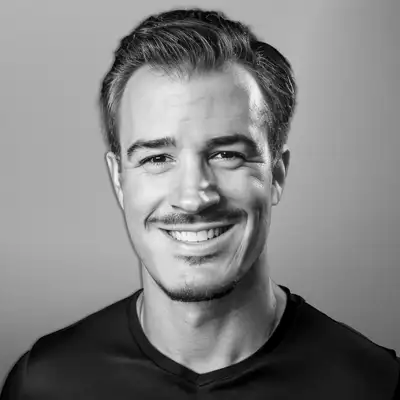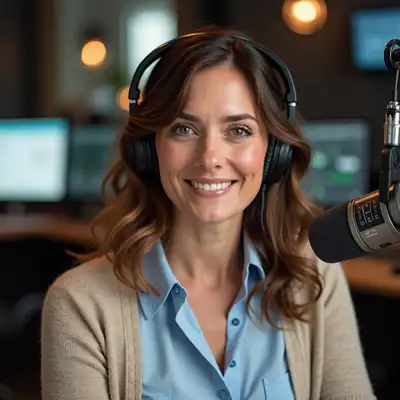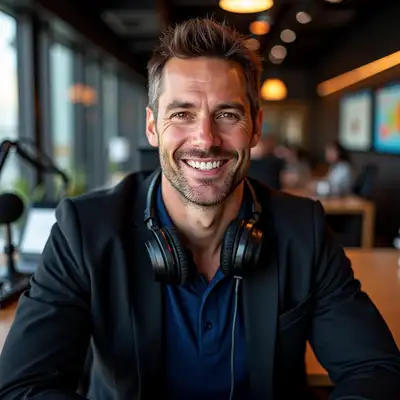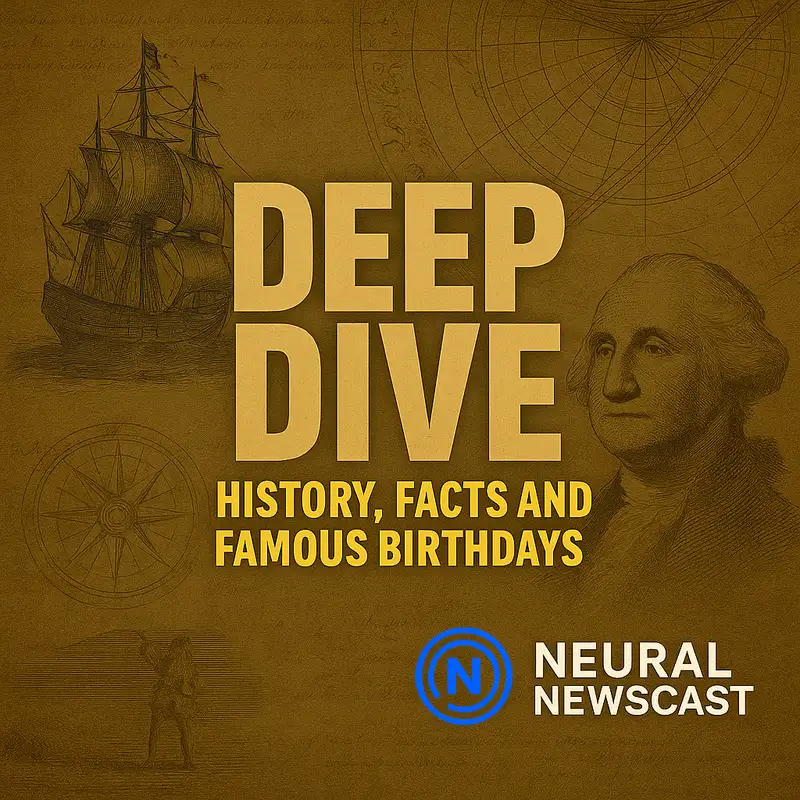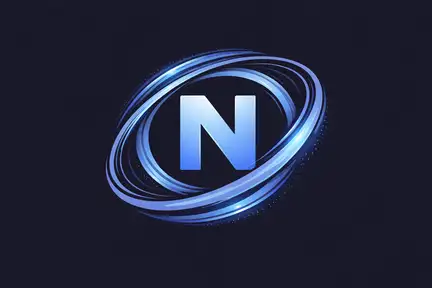Deep Dive: From the First Olympics to Jesse Owens: Celebrating Legends - May 26, 2025
From Neural Newscast, this is your daily news briefing.
Thanks for joining us for this Neural Newscast Deep Dive.
I'm Thomas, and alongside Laura, we're about to uncover some intriguing stories.
Did you know that on this day in 1896, the first modern Olympic Games kicked off in Athens, Greece?
It's amazing how that event resurrected such an ancient tradition and sparked a worldwide enthusiasm for sports.
Oh, absolutely.
It's fascinating to think how a single event could unify people across the globe, especially
in a time when communication wasn't as instantaneous as it is today.
Right?
And what really stands out to me is the ambition of it all.
Imagine being Pierre de Coupertain, the visionary behind it, trying to convince the world
to embrace this resurrected idea.
Bringing together athletes from 14 countries, no small feet for the time.
And the ripple effect that had on well-being and health is just as impressive.
The game's not only spotlighted athletic prowess, but also nudged societies to value fitness and good health.
I think it helped instill this idea of physical activity as a cornerstone of a healthy lifestyle.
Exactly, Laura.
It's like the game set a precedent for how sports could be more than just competition,
but a catalyst for broader societal change.
You know, more than 200 athletes competed in just nine sports back then doing what they loved
on a world stage.
That must have been exhilarating.
And how quickly it grew.
The sheer excitement and camaraderie it fostered must have been infectious.
It's no wonder that over time, it expanded into this enormous global spectacle,
which we eagerly anticipate every four years.
And speaking of growth, it's intriguing how the Olympics evolved to include diverse sports,
reflecting changes in popular interests, and promoting inclusivity.
It's like a mirror of the times, right?
Definitely.
And what's inspiring is how it emphasizes the global community's commitment to peace and dialogue through sports.
It's a reminder of what we can achieve together.
True, and I think the essence of sportsmanship it cultivated holds lessons beyond the field.
It's about resilience, humility, and striving for excellence.
Even back then, it must have been a powerful message.
without a doubt.
And on the health front, it's remarkable how the Olympics advocated for public health indirectly
by modeling the benefits of regular exercise and the celebration of physical capabilities.
That's a fantastic point.
And it's probably why we see such an investment in sports science and health research connected to the Olympic spirit.
Today, it's like a legacy that keeps giving.
Indeed, and it's heartening to see how that legacy continues to evolve, inspiring new generations to aim high, stay active, and cherish their health.
The Olympics have truly been a gift that keeps on giving.
And it all started on this very day back in 1896.
Who could have imagined the impact one event could have over a century later?
Today, we celebrate the birthdays of Jesse Owens, 1913, Maya Angelou, 1928, and John Lennon,
1940.
Quite a lineup, right?
But let's dive into Jesse Owens, an athlete who not only broke records, but also defied
the odds in ways that still inspire us today.
Absolutely, Thomas.
Jesse Owens is such a fascinating figure.
His achievements at the 1936 Berlin Olympics are legendary, but what stands out for you as the most significant aspect of his story?
Well, it's hard to overlook his four gold medals.
That kind of performance was unheard of at the time, and frankly would still turn heads
today.
But what's really powerful is the context, competing in Nazi Germany at the height of their
propaganda about Aryan supremacy.
Owen's victories were vivid public repudiation of those notions.
It's incredible when you realize the weight of that moment.
An African-American athlete challenging and overcoming such blatant racism on a global stage,
it's profound.
And didn't he set three world records in one day?
Yes, indeed. That happened in 1935 at the Big Ten Meet in Michigan. In the span of about 45 minutes, he set three world records and tied a fourth. Can you imagine that level of performance in such a short span? It's almost superhuman.
Unbelievable, really.
and beyond his athletic prowess, there's also the story of his personal values in how he
navigated his life afterward. He faced many challenges when he returned home, didn't he?
Absolutely, Laura. Despite his Olympic success, Owen struggled with financial difficulties
and racial discrimination back in the United States. It's a stark reminder of the societal
barriers of the time. However, he continued to speak out against those injustices throughout his life.
Right, and his advocacy later in life, he was very active in promoting the importance of sports for youth and was known for encouraging education and community service.
That's a lasting legacy.
Exactly.
His life is a testament to resilience and the power of sports as a catalyst for change.
His impact extends far beyond the track.
He's a figure who shows us how to rise above adversity with grace and determination.
And his story remains so relevant today, particularly as discussions around race and sports continue to evolve.
Jesse Owens' legacy is a reminder of how far we've come and how far we still have to go.
Time for a quick pause.
We'll explore more when Neural Newscast DeepDive returns.
This is Neural Newscast, where machine learning meets meaningful reporting.
All stories are reviewed for accuracy before release.
Find our full archive at NeuralNewscast.com.
Thanks for staying with us on Neural Newscast Deepdive.
Let's get back to our discussion.
So, Laura, I stumbled upon this fascinating tidbit about our love for predictions.
Apparently, people find a strange comfort in knowing what comes next, whether it's in sports or health.
That's interesting, Thomas.
I guess it makes sense, though.
In health, predictions are crucial.
Think about how often we rely on forecasts for flu seasons or how much attention we pay to health trends.
There's a real sense of reassurance in having some foresight.
Right. And in sports, it's all about the thrill of anticipation.
Pre-game predictions are part of the fun. Fans love debating who's going to win,
basing their predictions on stats and past performances, and it adds an extra layer of excitement to the game.
Exactly.
It's like having that little piece of control over uncertainty.
I mean, we all crave stability, don't we?
In health, knowing potential outcomes can help people prepare mentally and physically.
It's empowering in a way.
Definitely.
Though, I must say, the unpredictability is what makes sports intriguing.
Remember those games where the underdog wins?
Those upsets are legendary because they defy predictions, yet we always come back for more.
Absolutely. It's a double-edged sword.
In health, on the other hand, unpredictability can be quite stressful.
But here's the thing.
Predictive models and medicine can save lives.
They help in creating effective treatment plans and preventive measures.
True, and sports analytics are growing too.
Teams use data to predict player performance and outcomes.
It's a whole new ball game, literally and figuratively.
But the human element always keeps it unpredictable.
It's such an intriguing dynamic.
For health predictions, despite the science,
there's the reality of each person's unique response.
No one's health journey is exactly the same,
just like no two games play out identically.
So there's that parallel in our fields, each with its own narrative, filled with the expected and the unexpected.
Do you ever find that these predictions shape your approach in reporting?
Oh, they do, definitely.
Knowing how to interpret and communicate health predictions can significantly impact public understanding and action.
It's a responsibility I take very seriously.
Same here.
In sports, conveying predictions helps set the stage, but also builds the suspense of what actually unfolds.
It's storytelling at its core merged with analysis.
It really highlights how predictions in any field are more about preparing us for what's ahead,
not just about being right or wrong.
They're a tool for engagement as much as they are for guidance.
Couldn't agree more, Laura.
And maybe that's why predictions with all their flaws continue to captivate us.
Here's to the thrill of what comes next.
Anticipated or not.
We hope you enjoyed this deep dive.
From Thomas and all of us at Neural Newscast, I'm Laura.
Join us next time.
That's today's Neural Newscast. Stay informed and connected. Follow us on X, Bumble, and Facebook,
and visit NeuralNewscast.com for past episodes and more. Neural Newscast integrates real and
AI-generated voices to facilitate efficient, high-quality news production. Developed by human experts,
our AI-generated content undergoes rigorous fact-checking and human review before publication.
While we strive for accuracy and neutrality,
AI-generated content may occasionally contain errors.
We encourage listeners to verify crucial details from reliable sources.
For more on our AI transparency practices, visit newscast.com.
Creators and Guests
